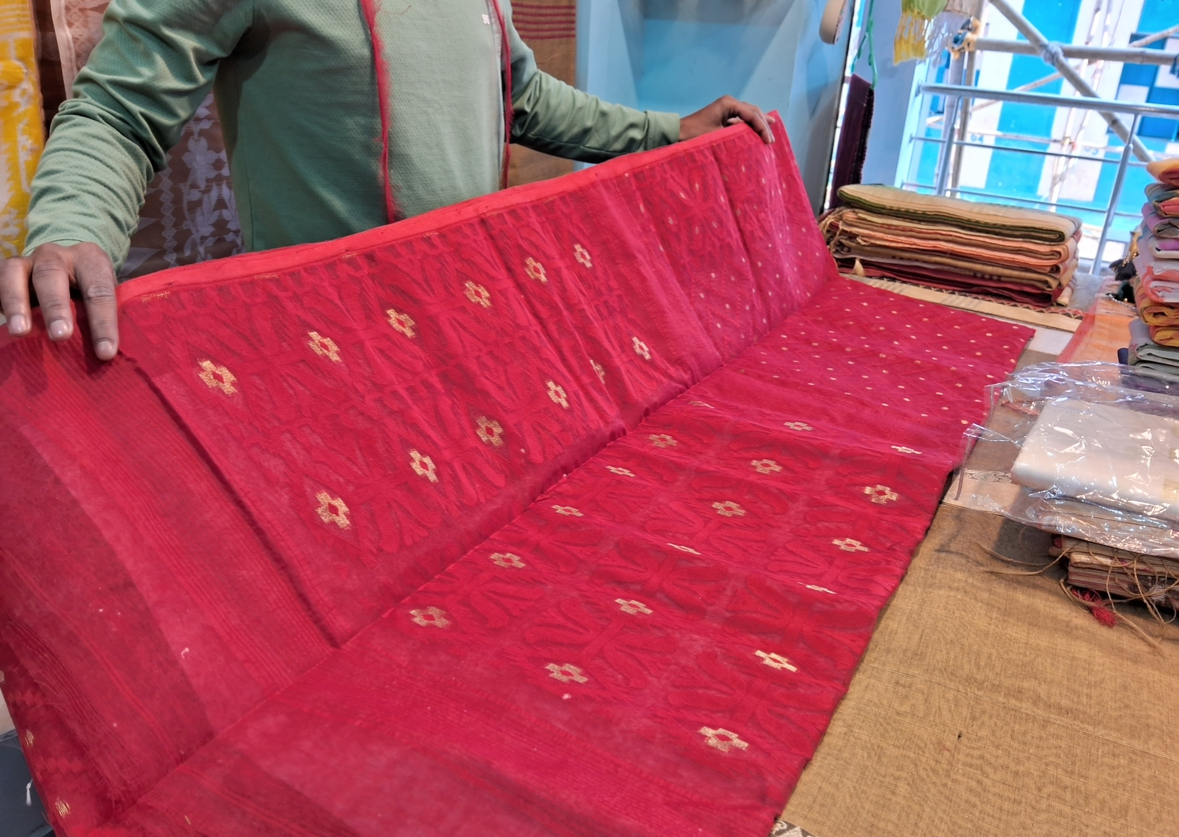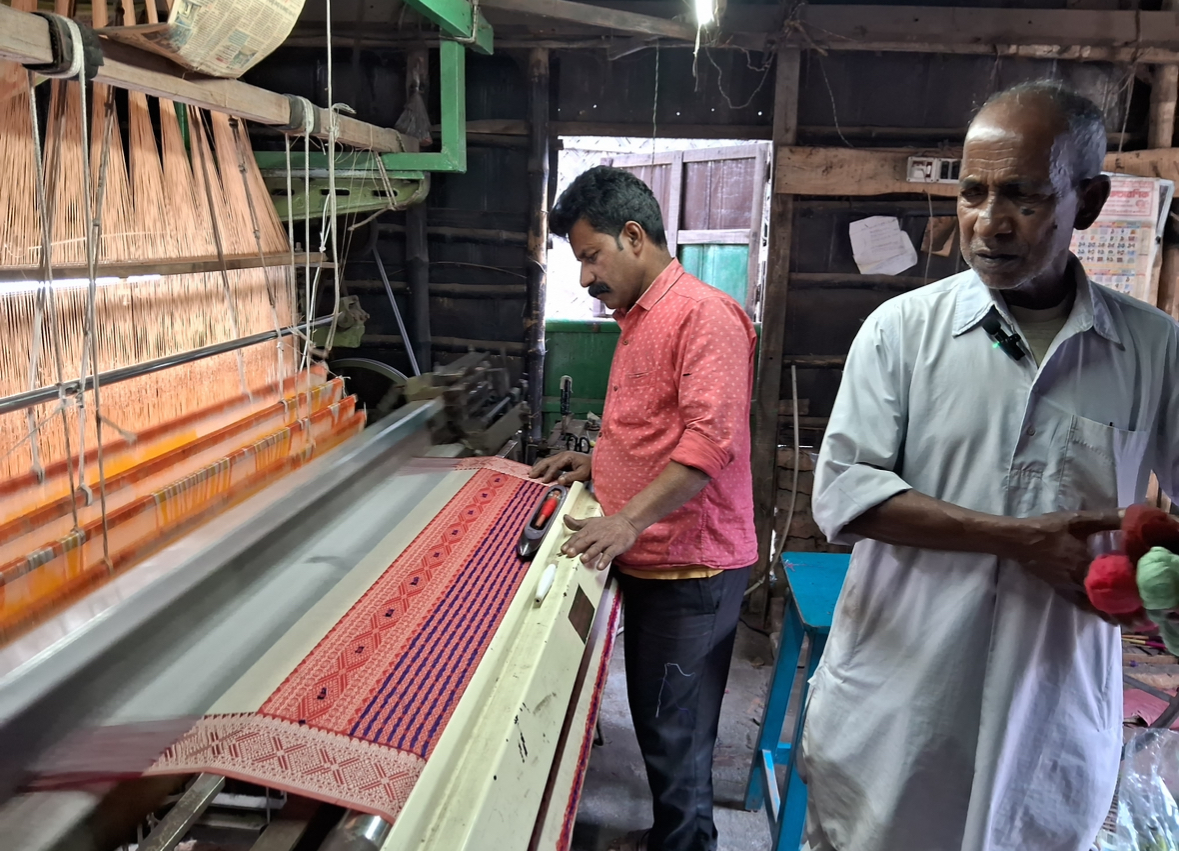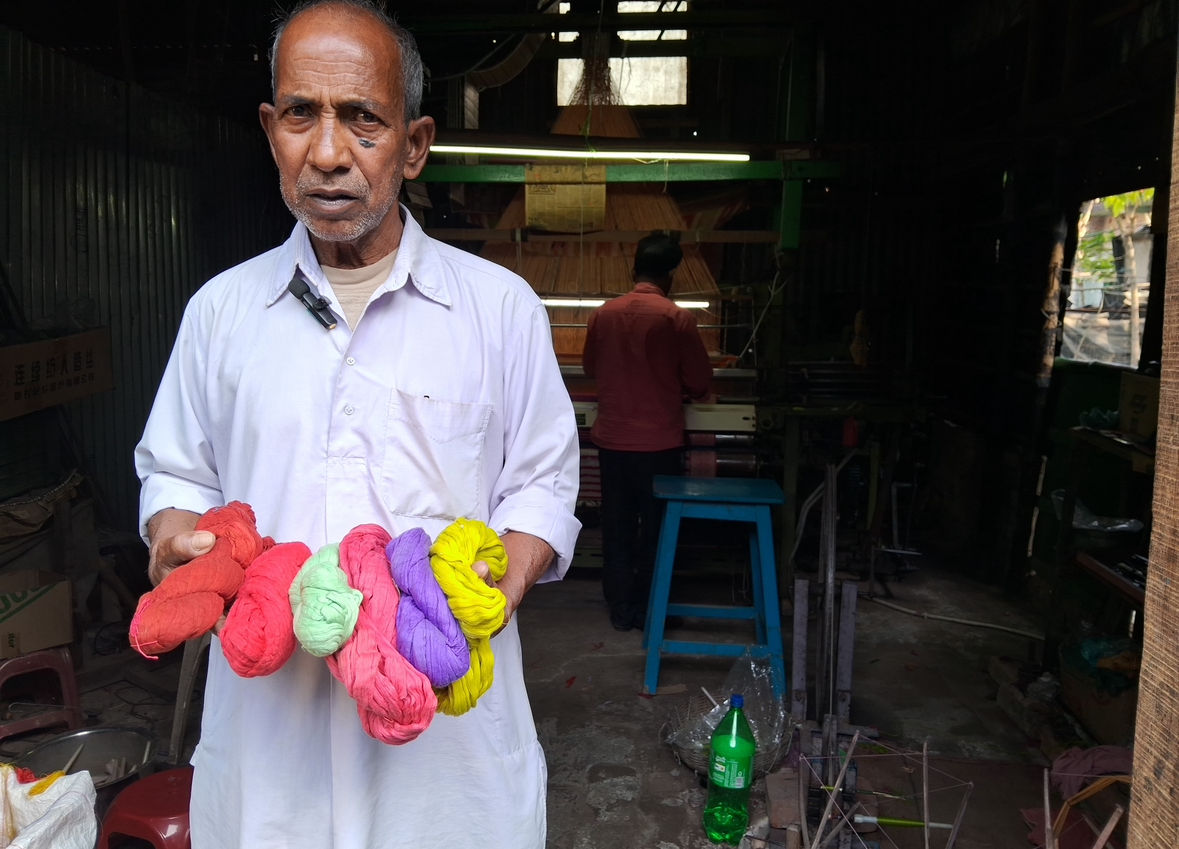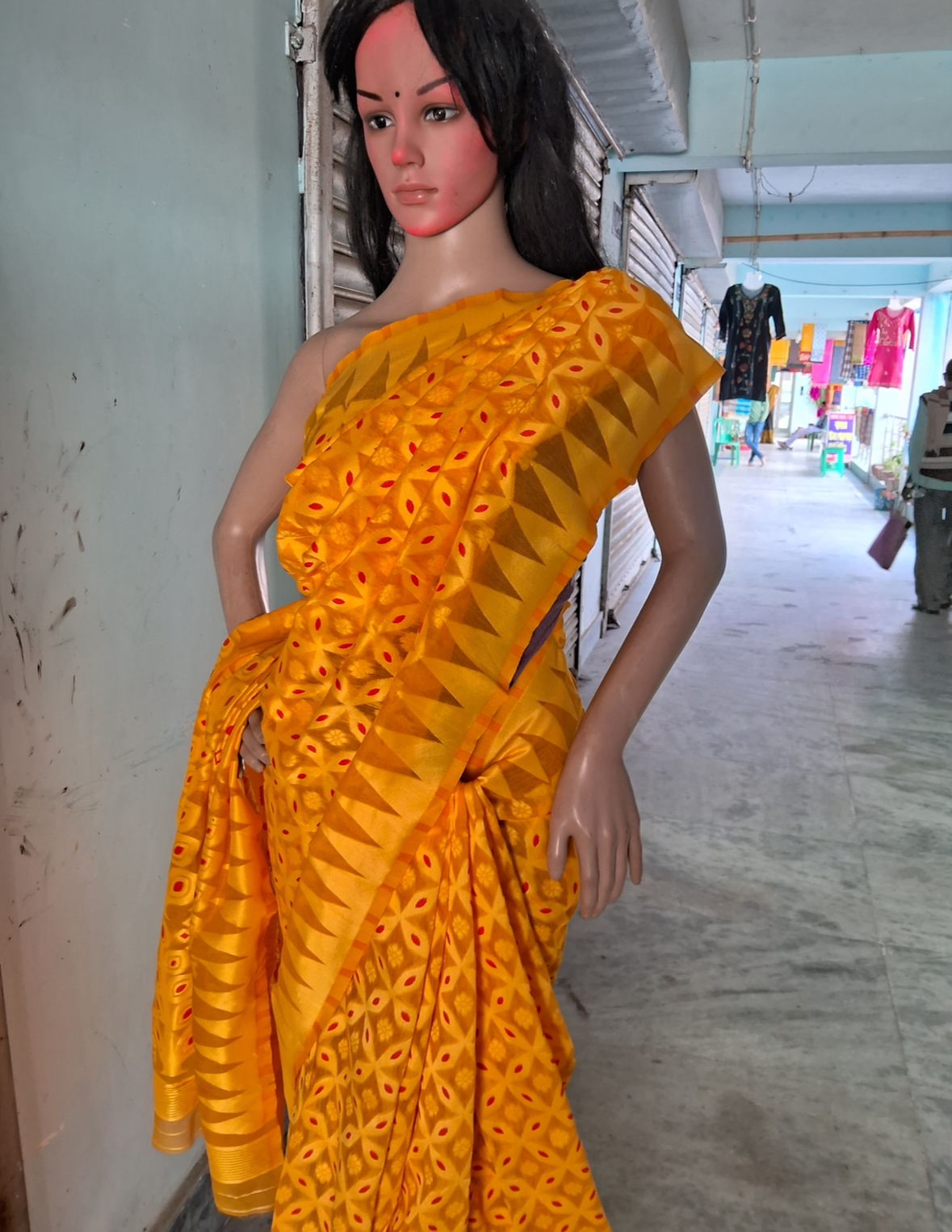Vygr News Bureau, Kolkata
Following a spat between netigens and handloom artisans in India and Bangladesh over Tangail saree, the Basak community in Nadia, in the southern part of West Bengal, told Vygr News that they have rights to claim Tangail as an Indian product. Automation and high-speed machines have ruined the weaving culture, the Basaks told Vygr on Sunday.

Bangladeshi Netigens have questioned the source and origin of the saree, for which the bodies of handloom artisans in West Bengal are awarded the Geographical Indications tag.
Handloom artisans in large numbers were forced to flee the Tangail region of Bangladesh and settle in Nadia, East Burdwan, and other parts of West Bengal. The migrated artisans narrated their miserable struggle with Vygr News on Sunday.

Historically, the Basak weavers' community was synonymous with Tangail saree production. However, in a bid to sustain their livelihoods, they trained a few other communities, including fishermen and Muslim locals. vygr learnt.
Chaitanya Basak, a 76-year-old artisan, reminisces about this transition, underscoring the fusion of tradition and innovation in Tangail saree production.

The allure of Tangail sarees lies in their intricate artistry, fine texture, and attention to detail, which attract a wide demographic of consumers. While favoured by both young and elderly women, it's the younger generation that predominantly embraces this cultural attire, infusing it with contemporary flair and style.
Tangail sarees continue to captivate markets worldwide with their exquisite craftsmanship and timeless elegance. Renowned for their intricate designs and impeccable quality, these sarees remain among the top-selling choices for discerning consumers.
Addressing the nuances of Tangail saree production, a distributing house in Nabadwip, Nadia, West Bengal, emphasised that despite variances in wage rates and production costs between Bangladeshi and Indian variants, the essence and quality of both remain unparalleled.

Detailing the production process, industry experts highlight the craftsmanship involved, noting that the intricacy of design often dictates the production timeline. While lighter varieties of Tangail may be completed within a day, heavier variants typically require 2-4 days to ensure perfection.
In conversations with Vygr News at a separate distribution point, adjunct to East Burdwan, artisans and distributors alike echo the sentiment that Tangail sarees represent not just a garment but a cherished symbol of heritage and craftsmanship, transcending borders and generations.
"We get a profit of Rs. 30 to 100 per saree. Overall, the machine is killing the business."
Chaitanya Basak told Vygr News.
The new generation from the rural region is no longer interested, as distribution or even showcasing tangails turned out to be the toughest challenge.
Image credit : Ayanangsha Maitra
© Copyright 2024. All Rights Reserved Powered by Vygr Media.























